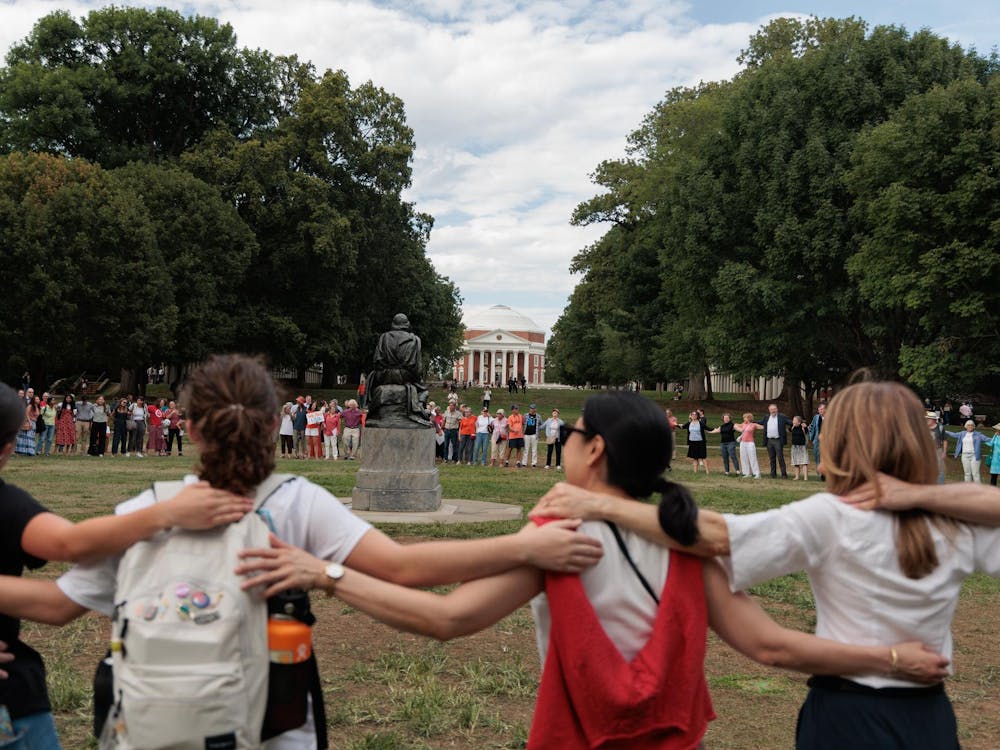As the Charlottesville Redevelopment and Housing Authority looks to redevelop public housing in the 10th Street and Page Street area, residents are increasingly skeptical of the success of such an endeavor.
The Housing Authority plans to build 376 units for about 1,000 people in the area as part of an effort to encourage a mixed-income community that will ultimately better the community financially, according to Noah Schwartz, executive director of the Housing Authority.
The first steps of the plan will be to talk to residents of the area and present them with the basic guidelines of the plan. The Housing Authority will then hire a redevelopment officer and a consulting firm that will draw a master plan, Schwartz added.
"First, we want to hear what our residents are thinking from the very beginning so we can incorporate [their opinions] into the plan," he said.
According to Schwartz, extra revenue made by renting units to middle-income community members would help the Housing Authority put more money into providing housing for low-income members.
Some of the residents in the area, however, are not as committed to this idea of redevelopment.
A woman who identified herself as Mrs. Fry said the Housing Authority could best improve housing in the area by simply fixing the homes people already own rather than adding more homes.
While the funds to revamp the older houses along with the new housing would be difficult for the Housing Authority to subsidize, Schwartz emphasized that the program would be helpful to the Housing Authority's long-term financial issues by increasing funds. For this fiscal year, the Housing Authority only received 84 percent of the funding it has received in the past.
According to another resident of the 10th Street and Page Street area, it seems impossible to build affordable housing for low-income families that is brand new when the cost of the living is so high.
"You know I have to buy the same bread as the people who live in Farmington," the resident said.
Schwartz and Charlottesville Mayor David Brown maintain that the Housing Authority is better posed for success in housing development than ever before.
"The housing board has a very strong board and good leadership, and the City Council has put a large number of funds towards the Housing Authority for projects like this one," Brown said.
The success of the program rests on the involvement of the residents, said Holly Edwards, coordinator of the Public Housing Association of Residents.
Fry said resident interest may be an issue, explaining that the poorer residents of the area currently renting their homes would not be interested in attending public housing meetings, noting that residents have no motivation to better themselves when, with a $9.50 an hour paycheck, they do not have the money to do so.
Some residents are not as skeptical as others of the plans but are more concerned about the construction process.
"If the job is done correctly, the project has the potential to develop movement away from poverty," Charlottesville resident Charles Adcock said, noting that the project's failure could result in people being shuffled around the city instead of addressing the problem.
The negative result would be similar to the Vinegar Hill housing "disaster" that occurred 40 years ago, Brown said.
Residents of the Vinegar Hill area, where the Omni Hotel is now located downtown, were uprooted by housing redevelopment in the 1960s and many moved to what is now the 10th Street and Page Street area, he added.
According to resident Melvin Flannagan, Jr., his uncle was given a 30-day notice to move away from the area once the development was complete and he could not afford to pay $3,000 a month.
According to Brown, the history of the area is indicative of the residents' skepticism.
"If I were in the [residents'] positions I would be concerned, given the history of Vinegar Hill; it was a disaster for the community," he said, noting that the Housing Authority is trying to combat this result by involving the residents in the process.
"We don't know how invasive the construction process will be but we want to keep an open dialogue with the residents in order to give people a choice in the process," Edwards said. "After all, there is a difference between doing the right thing and doing it right."
Fry said gaining the support of area residents will be a tough task for the Housing Authority.
"It will be hard enough to get the richer people to live with the poor people," she said. "I can't imagine trying to encourage people who rent to stay here when the community changes and you don't know your next door neighbor anymore"






